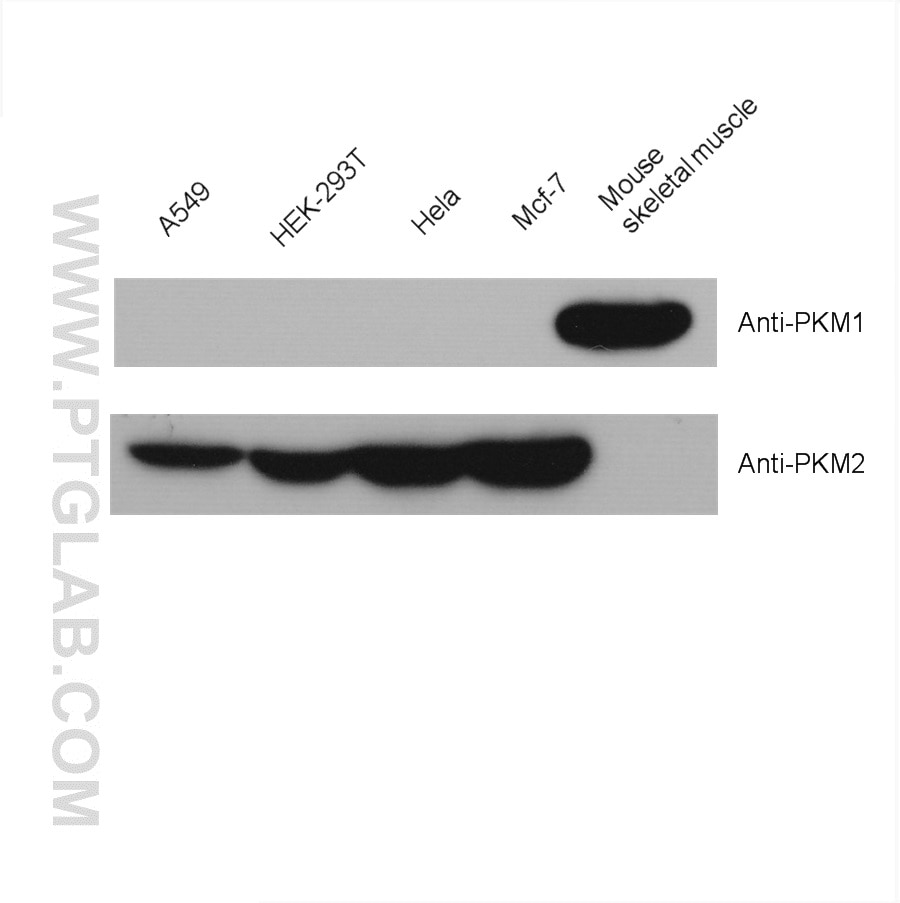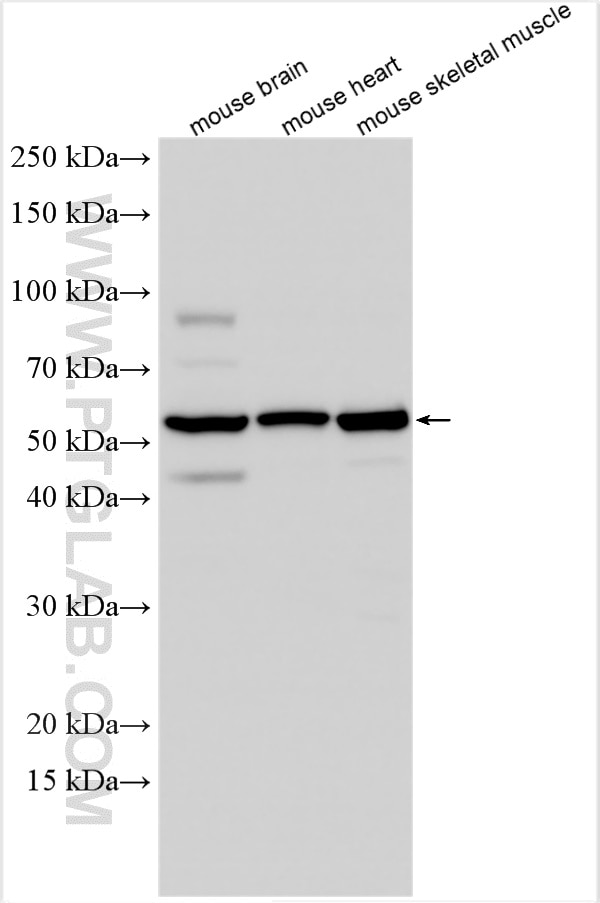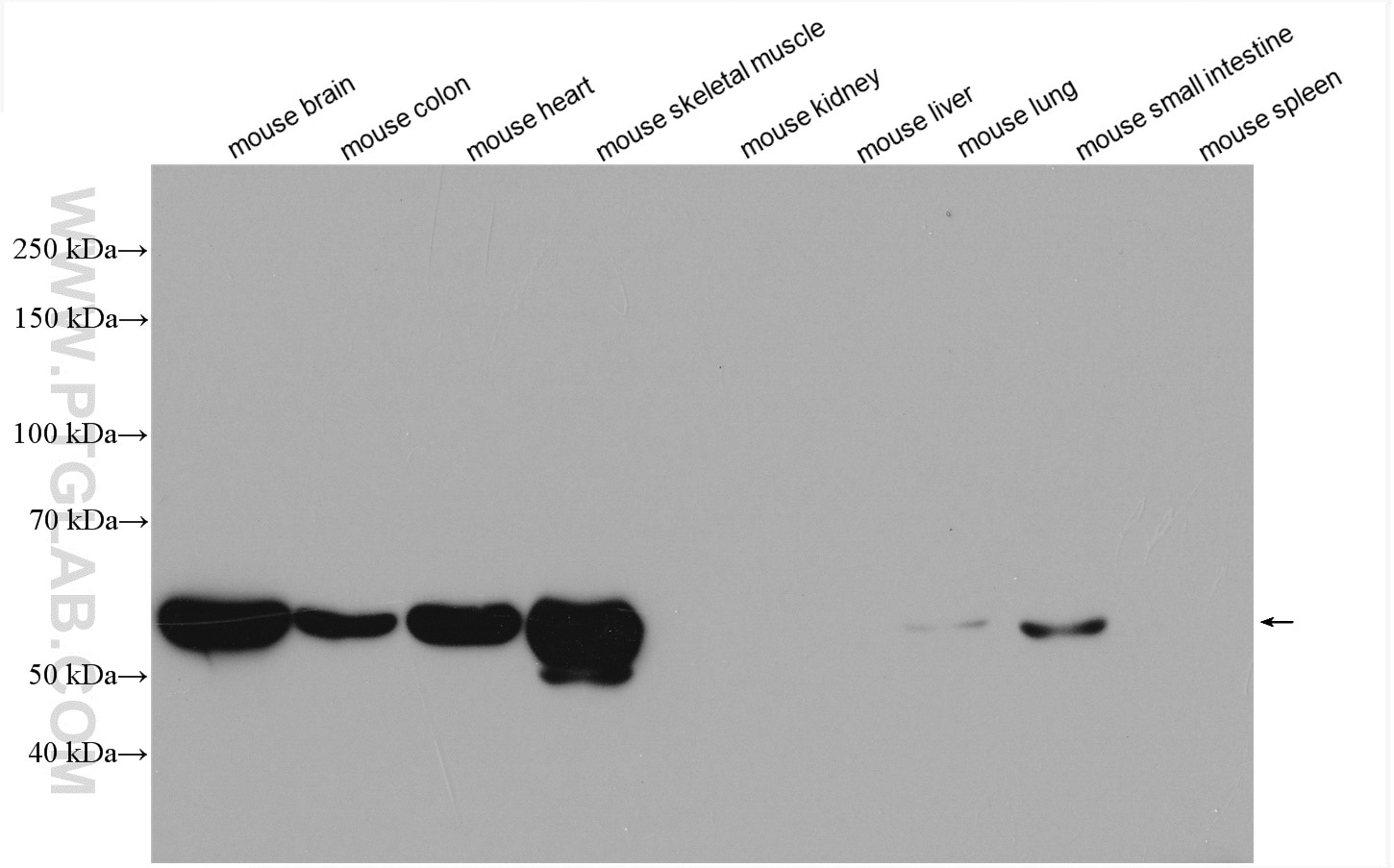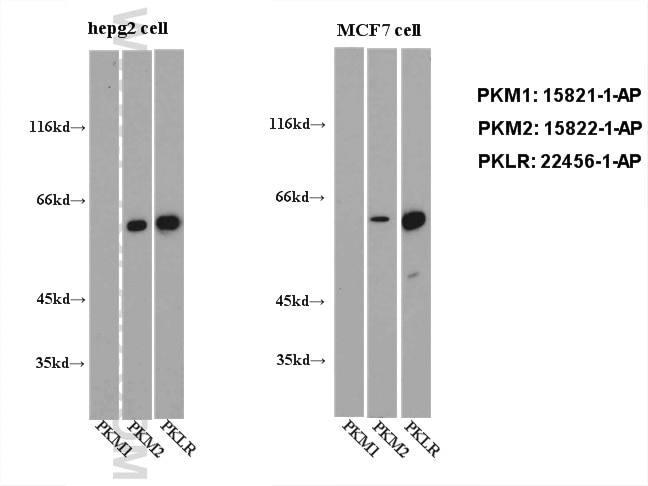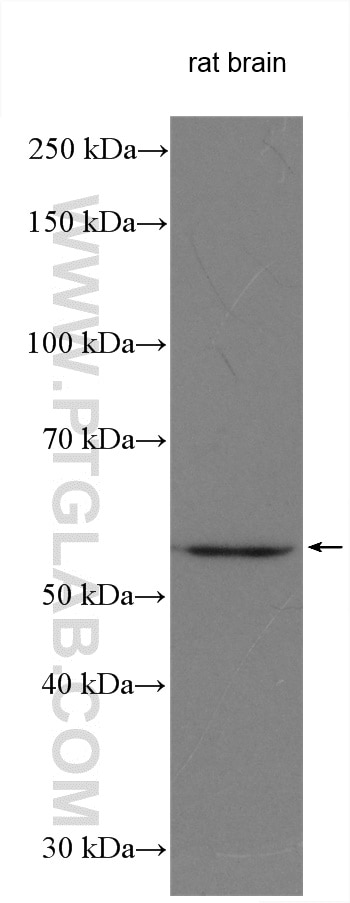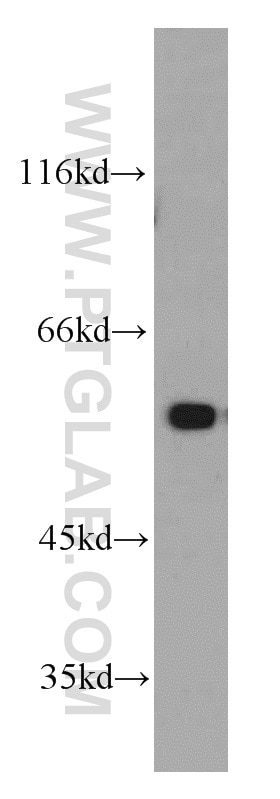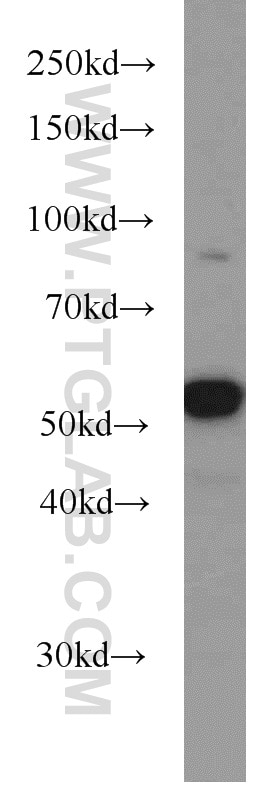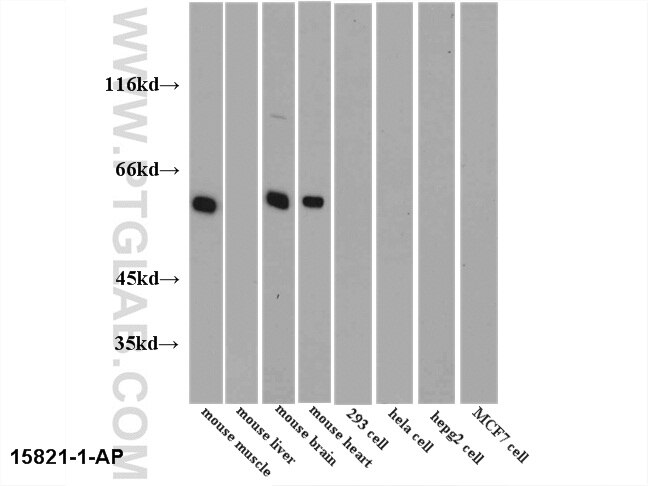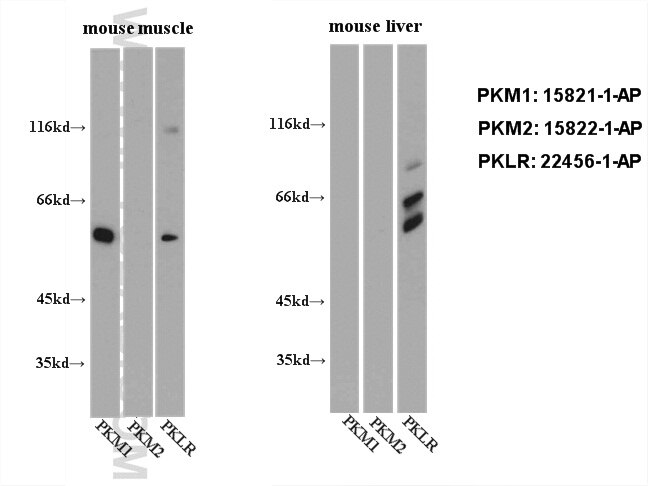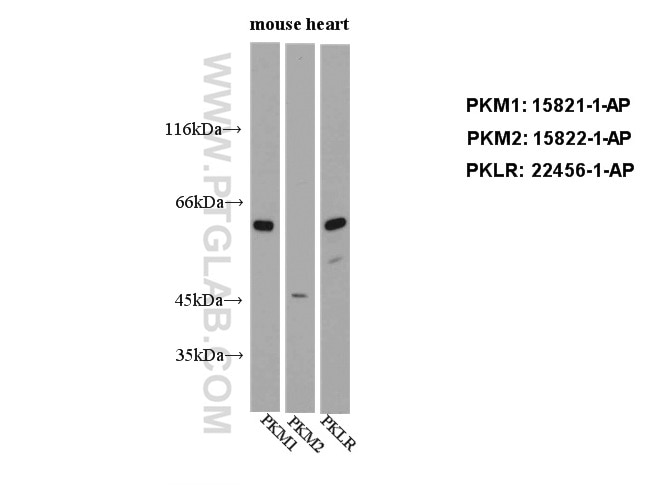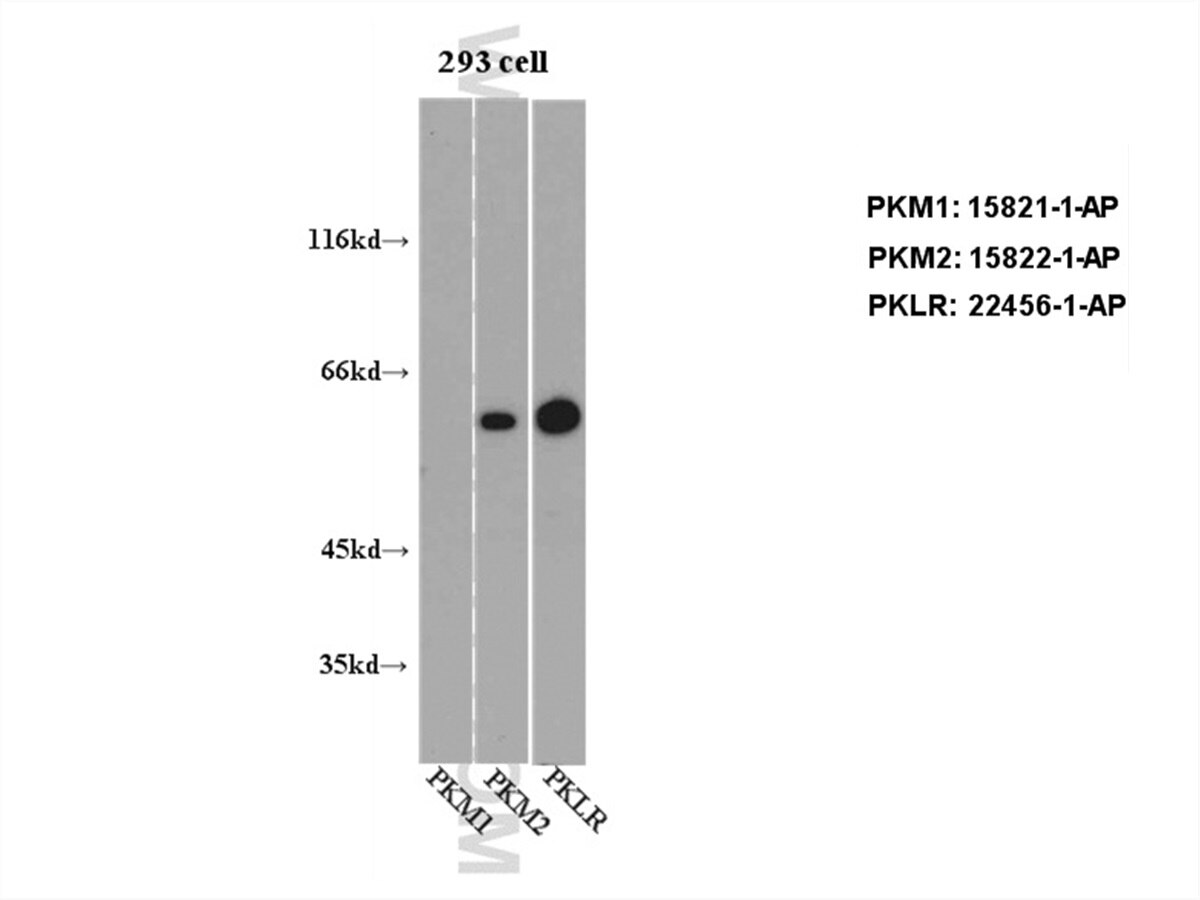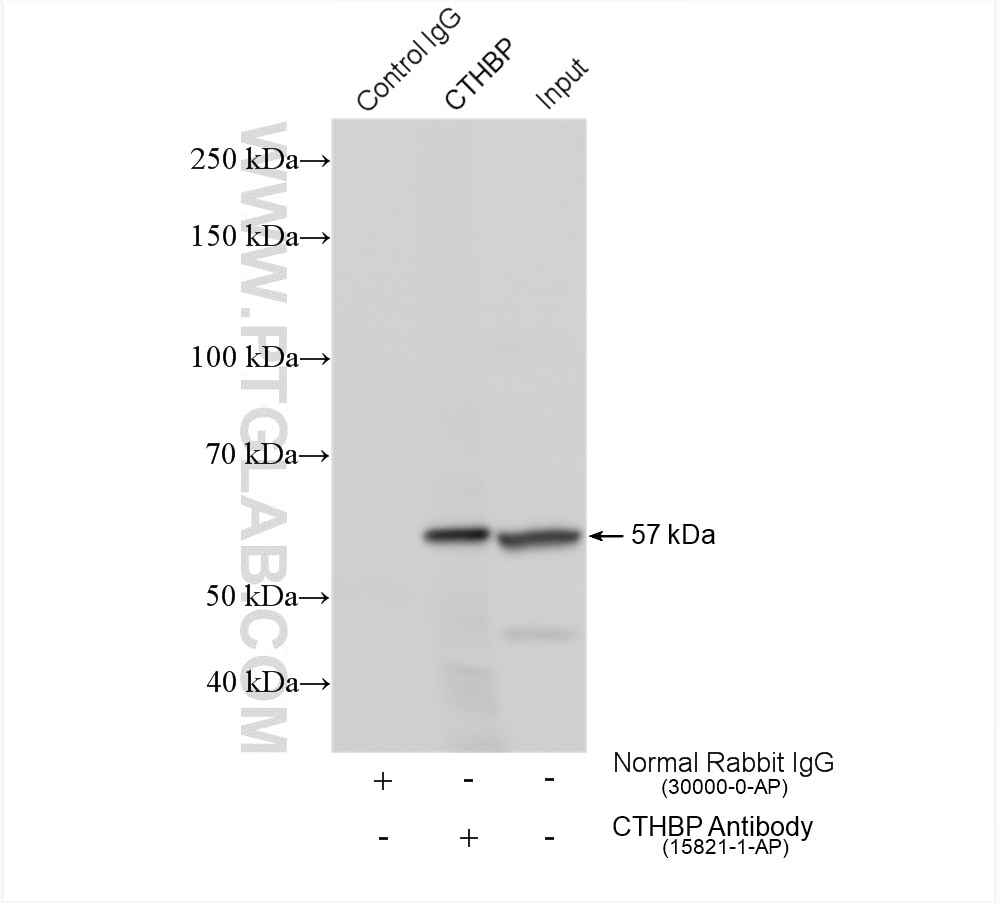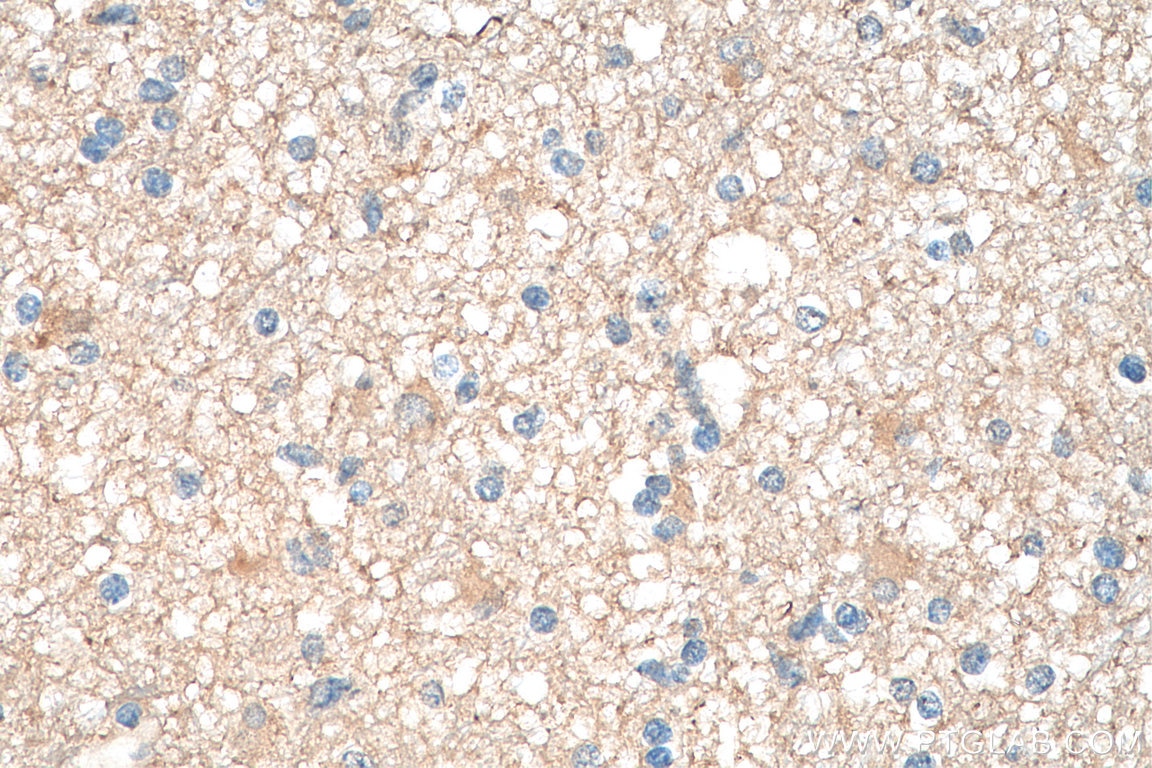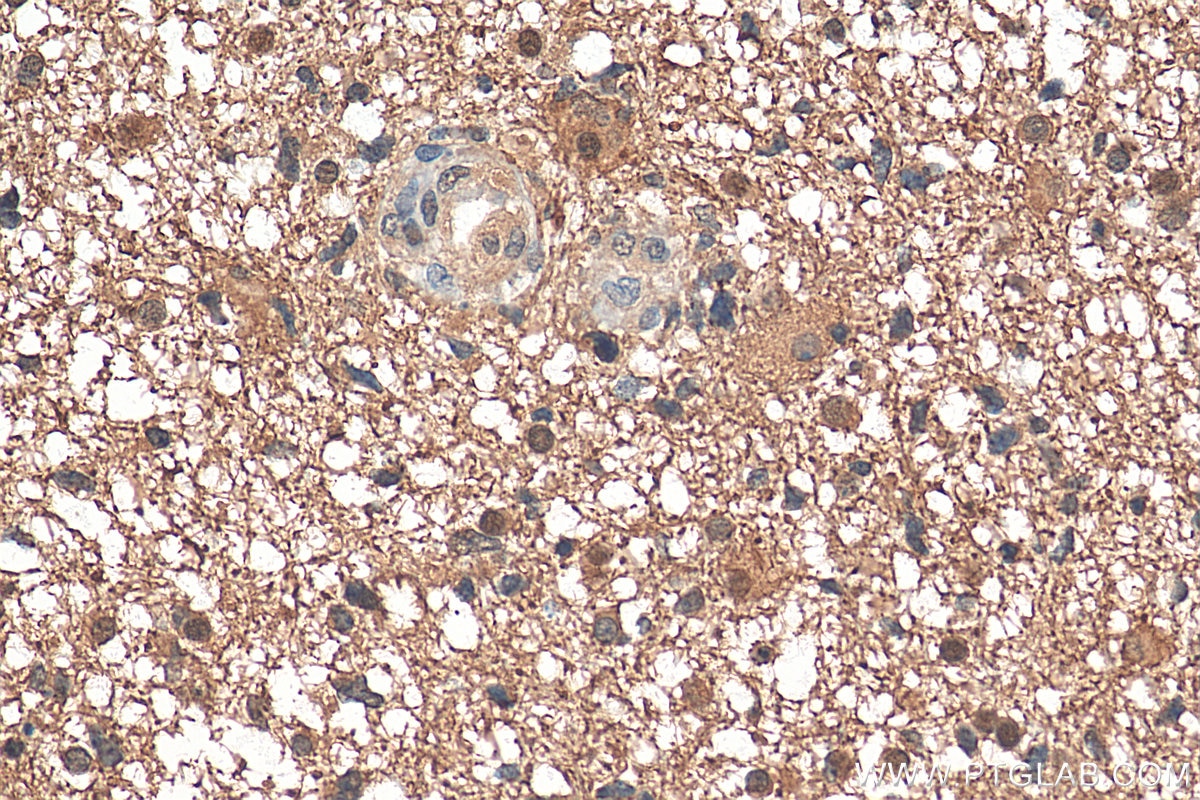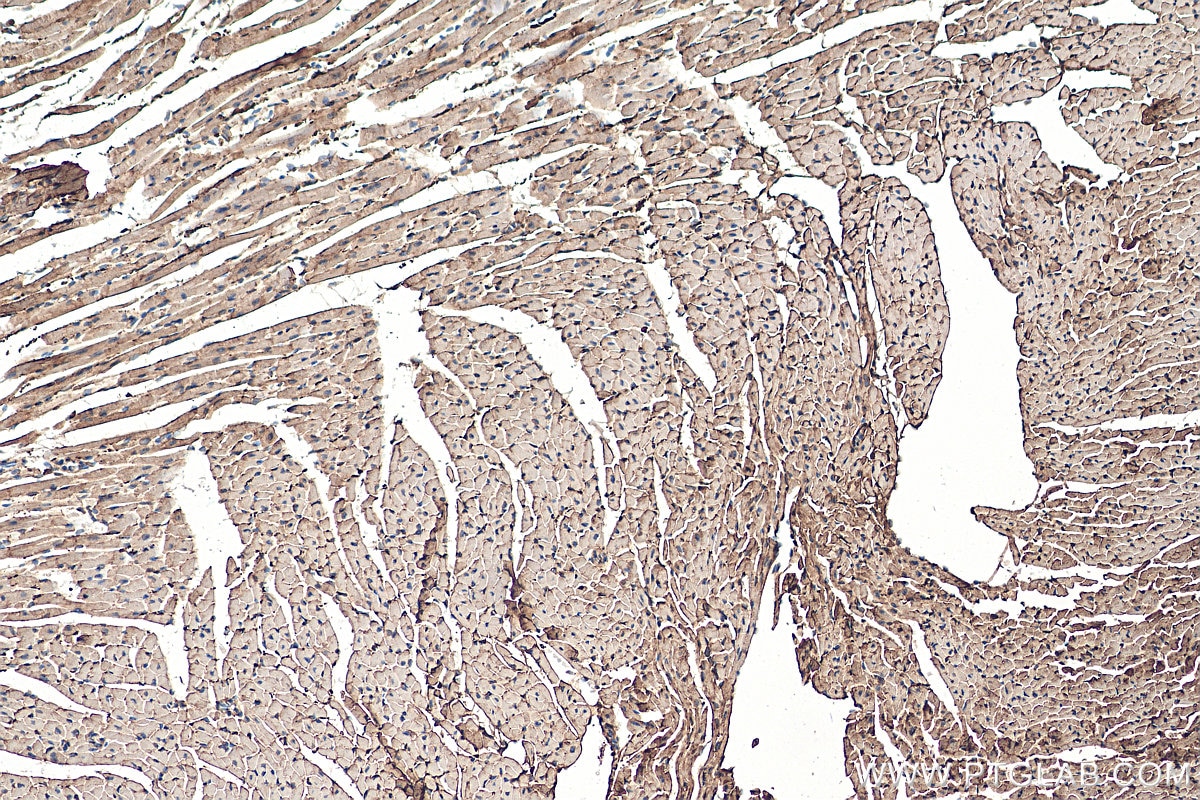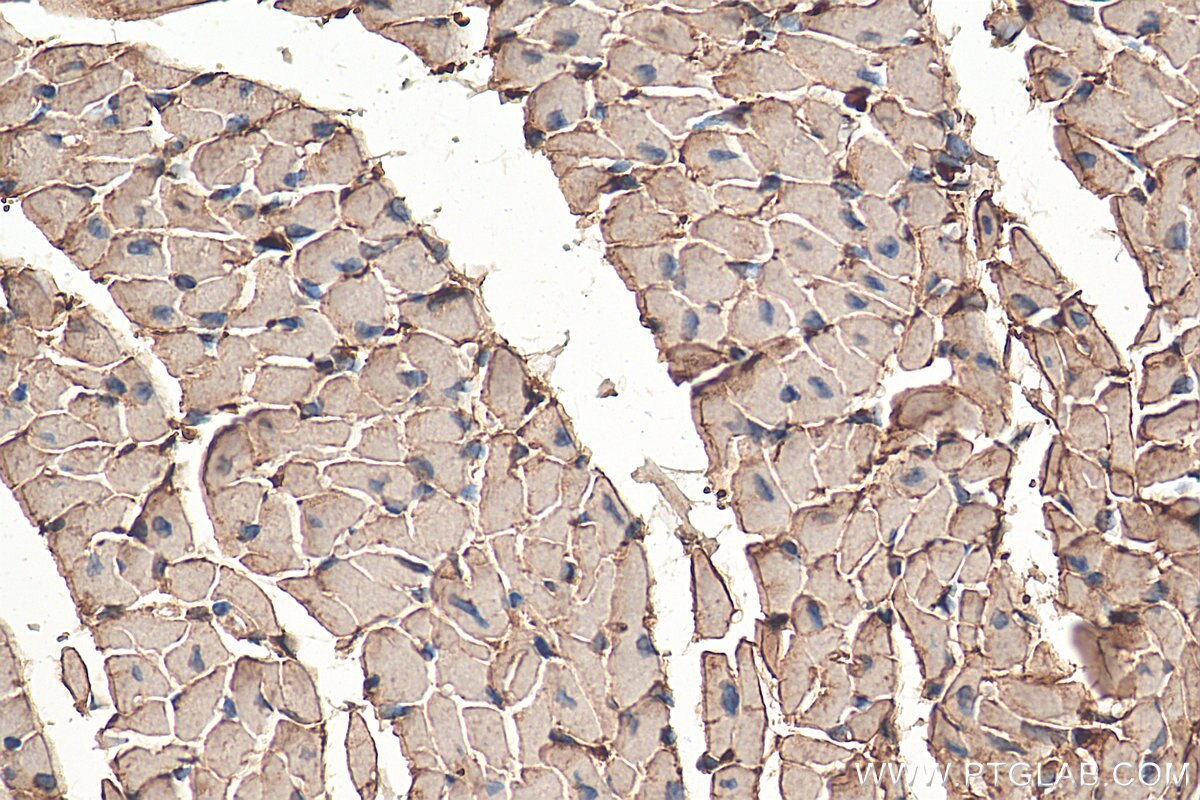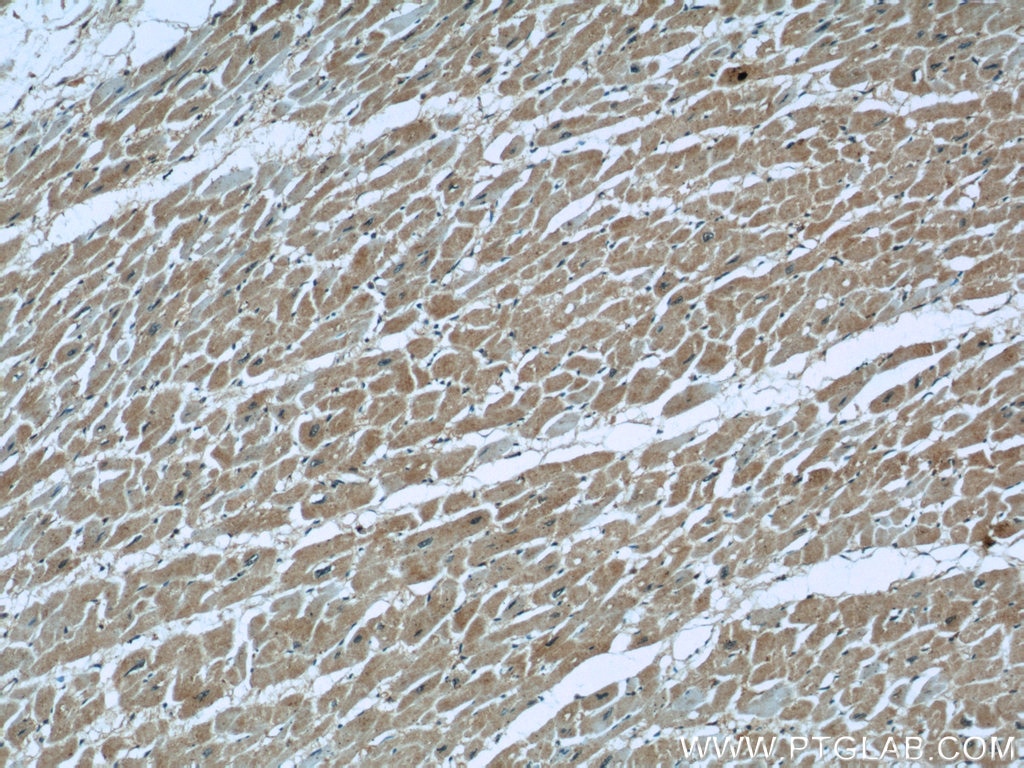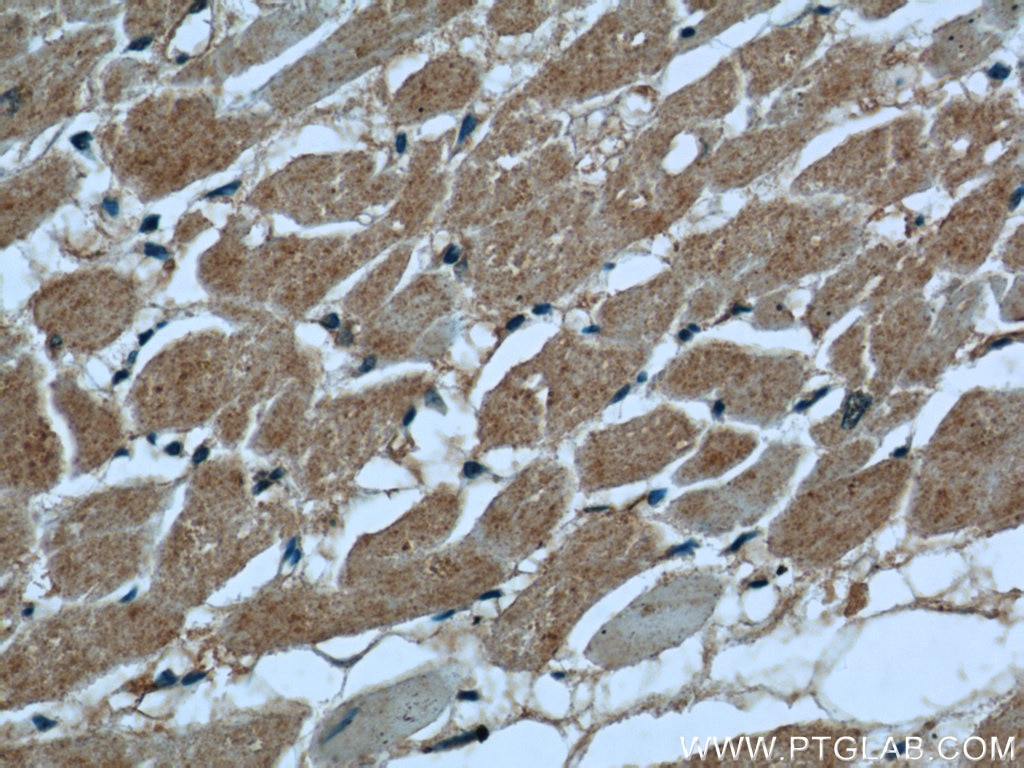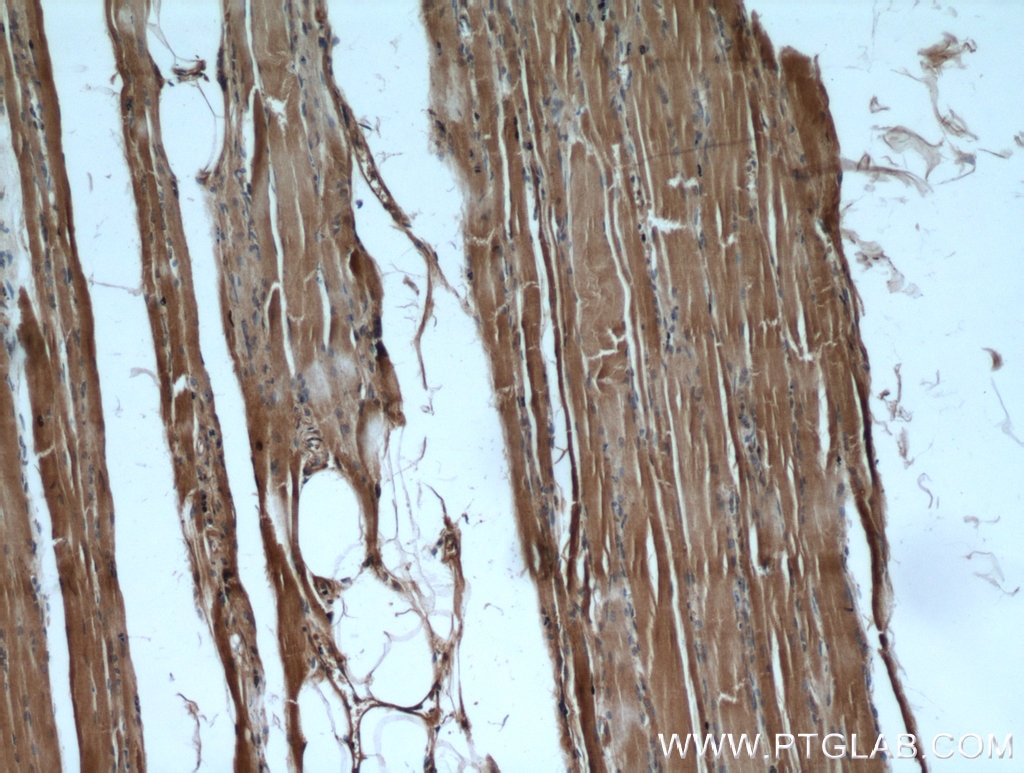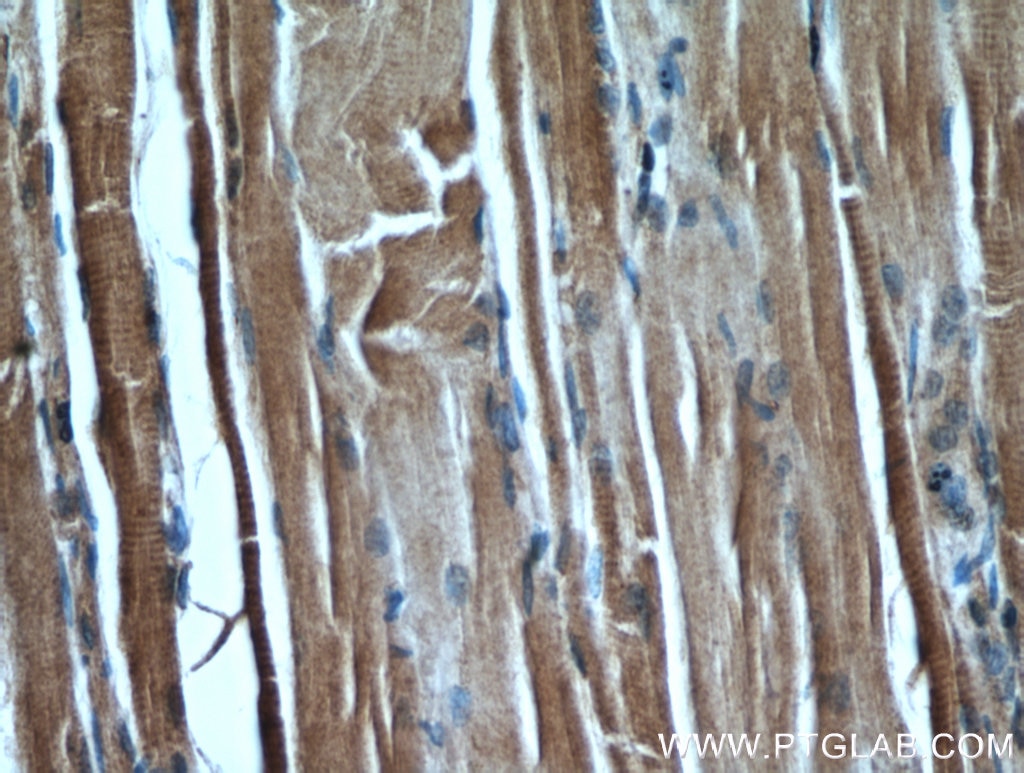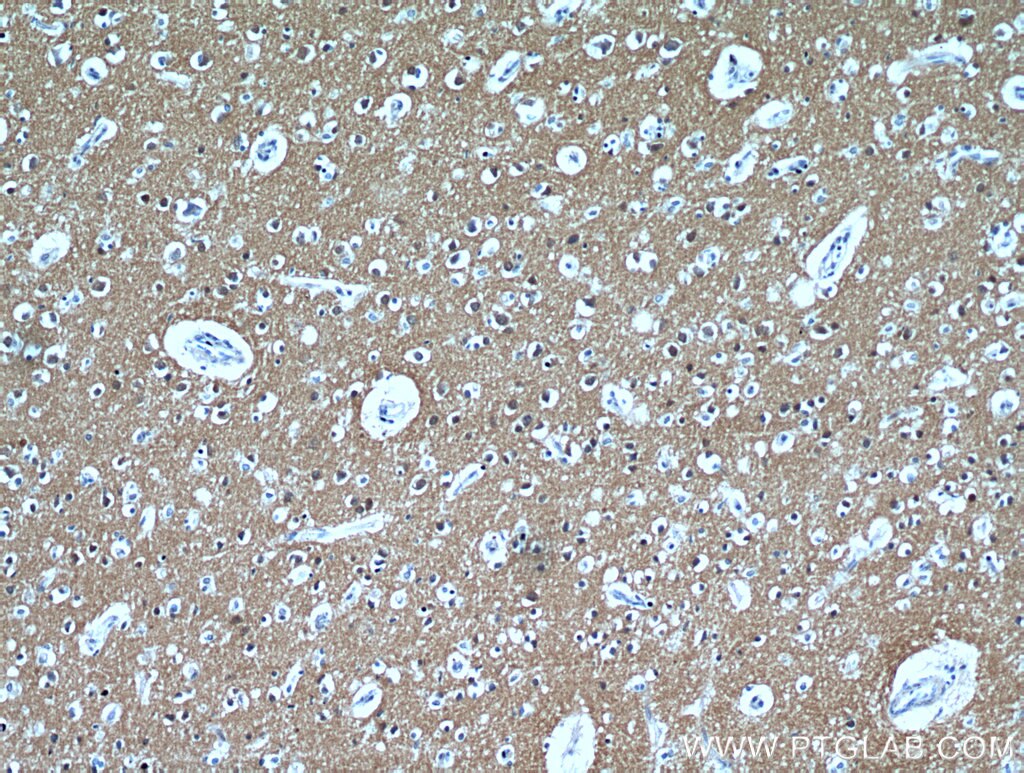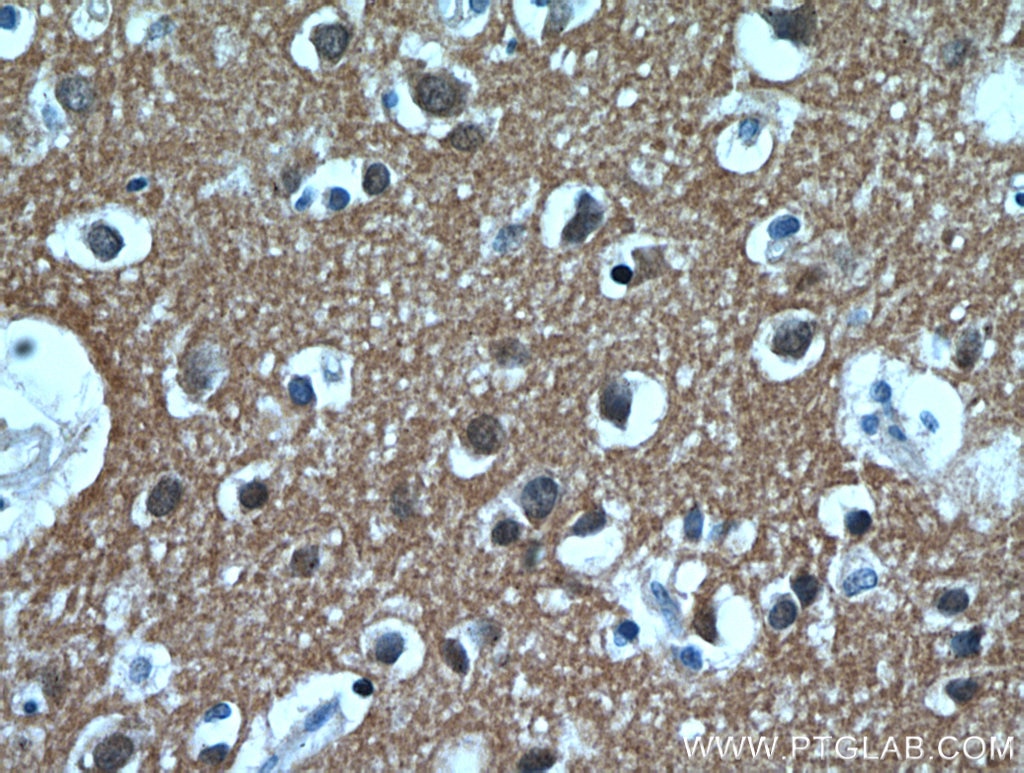- Featured Product
- KD/KO Validated
PKM1-specific Polyklonaler Antikörper
PKM1-specific Polyklonal Antikörper für WB, IHC, IP, ELISA
Wirt / Isotyp
Kaninchen / IgG
Getestete Reaktivität
human, Maus, Ratte und mehr (2)
Anwendung
WB, IHC, IF, IP, CoIP, ELISA
Konjugation
Unkonjugiert
Kat-Nr. : 15821-1-AP
Synonyme
Geprüfte Anwendungen
| Erfolgreiche Detektion in WB | Maushirngewebe, HepG2/MCF-7-Zellen, Maus-Kolongewebe, Mausherzgewebe, Maus-Muskel-/-Lebergewebe, Maus-Skelettmuskelgewebe, Multizellen/-gewebe, Rattenhirngewebe |
| Erfolgreiche IP | Maushirngewebe |
| Erfolgreiche Detektion in IHC | humanes Gliomgewebe, humanes Hirngewebe, humanes Herzgewebe, humanes Skelettmuskelgewebe, Mausherzgewebe Hinweis: Antigendemaskierung mit TE-Puffer pH 9,0 empfohlen. (*) Wahlweise kann die Antigendemaskierung auch mit Citratpuffer pH 6,0 erfolgen. |
Empfohlene Verdünnung
| Anwendung | Verdünnung |
|---|---|
| Western Blot (WB) | WB : 1:5000-1:50000 |
| Immunpräzipitation (IP) | IP : 0.5-4.0 ug for 1.0-3.0 mg of total protein lysate |
| Immunhistochemie (IHC) | IHC : 1:50-1:500 |
| It is recommended that this reagent should be titrated in each testing system to obtain optimal results. | |
| Sample-dependent, check data in validation data gallery | |
Veröffentlichte Anwendungen
| KD/KO | See 3 publications below |
| WB | See 82 publications below |
| IHC | See 12 publications below |
| IF | See 5 publications below |
| IP | See 2 publications below |
| CoIP | See 1 publications below |
Produktinformation
15821-1-AP bindet in WB, IHC, IF, IP, CoIP, ELISA PKM1-specific und zeigt Reaktivität mit human, Maus, Ratten
| Getestete Reaktivität | human, Maus, Ratte |
| In Publikationen genannte Reaktivität | human, Affe, Maus, Ratte, Rind |
| Wirt / Isotyp | Kaninchen / IgG |
| Klonalität | Polyklonal |
| Typ | Antikörper |
| Immunogen | Peptid |
| Vollständiger Name | PKM pyruvate kinase, muscle |
| Berechnetes Molekulargewicht | 58 kDa |
| Beobachtetes Molekulargewicht | 58 kDa |
| GenBank-Zugangsnummer | NM_182470 |
| Gene symbol | PKM |
| Gene ID (NCBI) | 5315 |
| Konjugation | Unkonjugiert |
| Form | Liquid |
| Reinigungsmethode | Antigen-Affinitätsreinigung |
| Lagerungspuffer | PBS with 0.02% sodium azide and 50% glycerol |
| Lagerungsbedingungen | Bei -20°C lagern. Nach dem Versand ein Jahr lang stabil Aliquotieren ist bei -20oC Lagerung nicht notwendig. 20ul Größen enthalten 0,1% BSA. |
Hintergrundinformationen
PKM, also named as OIP3, PK2, PK3, PKM, p58, THBP1, CTHBP and Tumor M2-PK, belongs to the pyruvate kinase family. It is glycolytic enzyme that catalyzes the transfer of a phosphoryl group from phosphoenolpyruvate (PEP) to ADP, generating ATP. It stimulates POU5F1-mediated transcriptional activation. PKM plays a general role in caspase independent cell death of tumor cells. PKM has 2 isoforms named PKM1 and PKM2. The primary pyruvate kinase isoform before tumour development is PK-M1; however, the primary isoform from four independent tumours is PK-M2 (PMID:18337823). This antibody is specific to PKM1 isoform.
Protokolle
| PRODUKTSPEZIFISCHE PROTOKOLLE | |
|---|---|
| WB protocol for PKM1-specific antibody 15821-1-AP | Protokoll herunterladen |
| IHC protocol for PKM1-specific antibody 15821-1-AP | Protokoll herunterladenl |
| IP protocol for PKM1-specific antibody 15821-1-AP | Protokoll herunterladen |
| STANDARD-PROTOKOLLE | |
|---|---|
| Klicken Sie hier, um unsere Standardprotokolle anzuzeigen |
Publikationen
| Species | Application | Title |
|---|---|---|
Nature The M2 splice isoform of pyruvate kinase is important for cancer metabolism and tumour growth.
| ||
Nat Immunol NKILA lncRNA promotes tumor immune evasion by sensitizing T cells to activation-induced cell death. | ||
Sci Transl Med ATP citrate lyase drives vascular remodeling in systemic and pulmonary vascular diseases through metabolic and epigenetic changes | ||
Nat Commun Phosphoglycerate dehydrogenase activates PKM2 to phosphorylate histone H3T11 and attenuate cellular senescence | ||
Nat Commun Interactome analysis reveals that lncRNA HULC promotes aerobic glycolysis through LDHA and PKM2. | ||
Nat Commun The HIF-1α antisense long non-coding RNA drives a positive feedback loop of HIF-1α mediated transactivation and glycolysis. |
Rezensionen
The reviews below have been submitted by verified Proteintech customers who received an incentive for providing their feedback.
FH Swati (Verified Customer) (09-26-2025) | The antibody functions perfectly with no background. Clear band observed at 58kDa
|
FH Pallavi (Verified Customer) (03-31-2025) | I used 1:5000 anti-PKM1 15821-1-AP, it worked perfectly. The reviews were quite helpful to decide which antibody to buy. The delivery was on time. Just make sure the delivery company hands over the package to you. so better to keep a track of the package.
|
